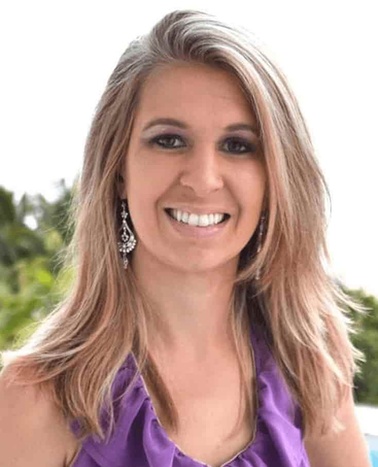
Echo Green
Echo Green is a partner on the Allen Austin’s Nonprofit practice as well as Technology, Media and Telecom practice. With a diverse background in media, technology and high tech as well as venture capital and private equity, Echo conducts C-Suite level and senior management searches across the sectors and consults in organizational leadership imbedded in the firm’s Total Performance Leadership architecture. Echo also has a heart for non-profit after starting one for wounded soldiers in her past.

"Diversity was a main factor that attracted me to the Global Executive MBA. The experiences and learnings from classmates were as great or even greater than what I learned in our textbooks."
WHAT WAS YOUR DREAM JOB AS A CHILD?
I wanted to be a surgeon so that I could help people. In college, I did cardiac research with some of the biggest names in science, and I learned so much that I decided to pursue a degree in medicine. As a student, I was able to see and do, getting my hands on the tools I needed to prepare myself. After seeing everything and having really enjoyed what I learned, I realized that medicine was not the best path for me in the long run. Even though I got a degree in this area, it’s not what I ended up pursuing as a career!
WHAT DO YOU THINK IS THE MOST SIGNIFICANT BARRIER TO FEMALE LEADERSHIP?
Sometimes women are at a disadvantage when they leave the workplace or reduce the intensity of their workload to have children. Many women also get married during the formative years of their careers. It’s not often seen this way, but these choices can decelerate the trajectory of a woman’s career path as time is split between their professional and personal lives.
American culture promotes women who sacrifice everything for work which is not healthy for either party in the long run. Women make phenomenal leaders, but often due to shifts in priorities, they are not in the most senior positions because of other things that they have accomplished along the way. These other achievements are often undervalued, despite being factors that really help a person to become more complete and thrive in other areas of their lives.
WHAT INSPIRES YOU AND WHY?
Learning, traveling, the outdoors and my family inspire me. I have traveled all over the world and love to do it whenever I can. I learn so much by observing other people, seeing what they do, how they do it and what their challenges are. I feel like we can be inspired by what other people have to go through and see how blessed we are in so many ways as a result.
Being outside invigorates me. I love to wander through new cities and the countryside to get a feel for how people live, what it’s really like and to see things I would otherwise miss. It clears my mind and opens it up to new things. I love that!
It’s the little things that make a big difference. Seeing others learn also inspires me to continue learning, teaching and growing. We all learn from each other, whether we’re old or young. Perspective makes such a difference and seeing others learn, be inspired and have different points of views keeps me on track for ensuring that I am seeing, learning and inspiring others! I love to do these things with my family and friends, and it’s rewarding to see the legacy that we are leaving behind.
WHAT DO YOU THINK WILL BE THE BIGGEST CHALLENGE FOR THE NEXT GENERATION OF WOMEN?
Balance. It’s a struggle to find who you are in life and then live up to it, and it’s even harder to stay confident and be successful. We need to realize that we are all in this life together, walking the same path.
To do well, as the saying goes, ‘it takes a village.’ At a younger age, many feel that they are independent and can do it alone. As we age, I think you realize the strength in numbers. A great advisor and coach is also helpful for seeing the bigger picture and making better decisions. We put ourselves in silos and it’s hard to get outside of them.
Despite having the best technology of all time at our fingertips, many people are lonely, sad and depressed. We don’t share our experiences to help others learn and grow. Balancing what we are doing and ensuring that we have a team around us to help us succeed while sharing our learnings with others. That will be a challenge for generations to come. It is much easier to sit in your small bubble and do things by yourself. But I can assure you that the network that you have around you is key to success and joy in life.
HOW DID YOU ACHIEVE A WORK-LIFE-STUDY BALANCE DURING THE GLOBAL EXECUTIVE MBA?
You have to figure out how you work best and learn to schedule appropriately. In my case, I traveled lots during the program for my job and had to juggle getting work done, class assignments, group projects and family. I assessed my workload and then adjusted school to fit into that while taking time to schedule being with my family.
While I was traveling, I would get up early to read school assignments on the elliptical machine—that way I was awake and managed to get some exercise! When I had a lull during the work day, I would chat with team members for school and work on assignments. Then, I would take a step back and have dinner with my family and reserve the weekend just for them.
It’s also key to communicate with your group about what works best in terms of your schedule, and try to adapt to everyone’s needs. We all realized that there were different ways we could divide the work in order to be more successful together.
HOW DID YOU MOTIVATE YOURSELF?
My mother has always said that I was born on time, and I’ve never been late since. I think staying motivated comes naturally to me. It helped me to work with a great team and find mentors within my class for each different subject. It’s a very useful way to help identify your strengths and areas for growth in order to help motivate others in those areas.
Deadlines and the fast pace of the program also helped. Seeing your peers during the face-to-face periods in each country also helps to keep you motivated because you really make friends and bond. As classmates, we shared lots of experiences and made memories together. That helped us motivate each other as well as ourselves!
WHAT DROVE YOU TO APPLY FOR THE GLOBAL EXECUTIVE MBA PROGRAM?
Diversity was a main factor that attracted me to the Global Executive MBA. The experiences and learnings from classmates were as great or even greater than what I learned in our textbooks.
Walking through examples that a classmate brought up was a useful way to actually see something in practice and work through options and solutions. The case studies were also key to driving dialogue and seeing the various points of views of different people from different backgrounds. Experiencing different cultures, learning styles, locations and businesses as we visited each partner school was also very revealing for all of us. It was great to not just talk about things but to get to see them in person.
WHAT IS THE BIGGEST LESSON YOU TOOK FROM THE PROGRAM?
It’s not just about what you know—it’s also who you know. It was awesome to visit, meet and experience things from multiple points of view. The program had great diversity in terms of people’s backgrounds—from culture to nationality, to industry and functional positions across the class. This, coupled with the rich curriculum and various professors, all added layers of complexity and enrichment to the program.
I was accepted into quite a few renowned local schools and would have been in class with lots of people with backgrounds similar to mine. In the Global Executive MBA there was a lot of diversity, so everyone had a different background. It showed us how diversity really can increase the productivity and performance of an organization.
IF YOU HAD TO START THE PROGRAM OVER, KNOWING WHAT YOU KNOW NOW, WHAT WOULD YOU DO DIFFERENTLY?
It would be awesome to do the program again and see what you learn differently based on the new intake of students in the class.
Your classmates have a huge impact on your experience! What you take from the experiences of others is as valuable as what you learn from textbooks, case studies and professors—each student is a walking case study. Varied backgrounds, industries, roles, responsibilities, stages in life, experiences, companies and understandings really give you a fantastic view of how diversity can help you become successful and see things from new perspectives. Additionally, this experience gives you new friends to visit around the world and colleagues to reach out to and collaborate with as you move forward in your career.
I am actually currently working with quite a few alumni friends and classmates on a new business idea and opportunity. The IE network is really strong! A fellow alum reached out to me to discuss an exciting new idea. Then, I reached out to a classmate who was strong in one area and another who was an expert advisor in different area. Soon, we were all working together to create a new company!
I would love to experience more of this and IE Business School’s Global Executive MBA program definitely built this network of trusted advisors that you can have at your fingertips. It’s exciting to have a network of people around the world who can share and collaborate with you and celebrate new ideas and successes!
IF YOU COULD GIVE ONE PIECE OF ADVICE TO FUTURE FEMALE APPLICANTS, WHAT WOULD IT BE?
My advice? Don’t be afraid to jump in and try something new.
When I looked at the option of starting grad school, I knew it was a big step. It was a little scary. Everything I saw and heard looked risky—it was daunting to take on a full-time course load on top of a full-time job, traveling, family, friends, life, health and everything that comes up in a day. The advantage is that everyone else in your class is doing the same thing!
Of course it’s a little scary, but it’s also lots of fun. It really does teach you how to budget and value your time. You have to take the risk of being vulnerable to those around you—at work, in class and in your family. That’s not what people like to do, especially women. It is sometimes thought of as a weakness. Actually, we are all vulnerable. Letting people see and understand what you are doing and how you are managing and juggling everything to keep them balanced is important. It helps others understand you and helps you to understand them. It also gives them an opportunity to share things with you and grow together.
You have to learn to trust others in this process too. Through the school experience, you can’t do it all yourself—there’s not enough time in the day! You have to empower your team to make decisions and grow. You have to trust your classmates to work on their pieces. In the end, it helps you learn how to be a better manager of work, time, relationships and people because it stretches you beyond what you thought you could do and enables you to help others succeed too!